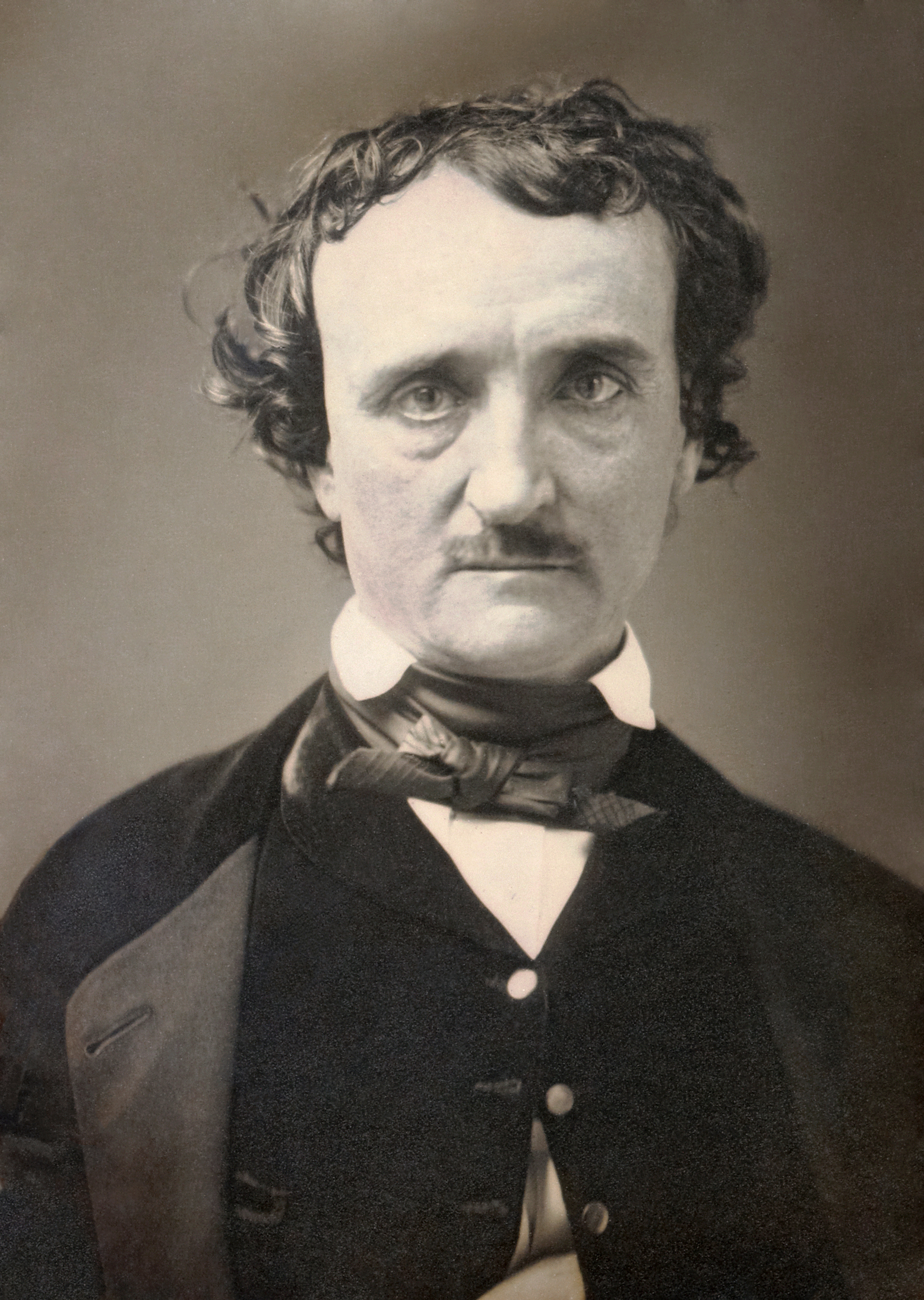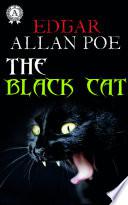Works

Annabel Lee
Edgar Allan PoeThe Philosophy of Composition
Edgar Allan PoeThe City in the Sea
Edgar Allan PoeUlalume
Edgar Allan PoeWilliam Wilson
Edgar Allan Poe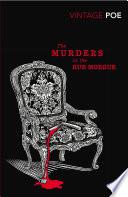
The Murders in the Rue Morgue
Edgar Allan PoeBerenice
Edgar Allan Poe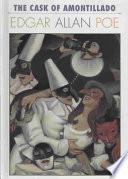
The Cask of Amontillado
Edgar Allan PoeThe Haunted Palace
Edgar Allan PoeThe Bells
Edgar Allan PoeEldorado
Edgar Allan PoeA Dream Within a Dream
Edgar Allan Poe
Lenore
Edgar Allan PoeTamerlane and Other Poems
Edgar Allan Poe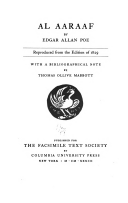
Al Aaraaf
Edgar Allan Poe
The Conqueror Worm
Edgar Allan PoeAlone
Edgar Allan Poe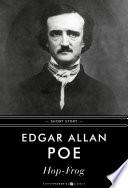
Hop-Frog
Edgar Allan PoeTamerlane
Edgar Allan Poe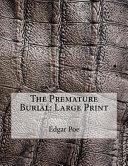
The Premature Burial
Edgar Allan PoeTo One in Paradise
Edgar Allan PoeFor Annie
Edgar Allan Poe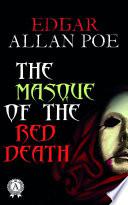
The Masque of the Red Death
Edgar Allan Poe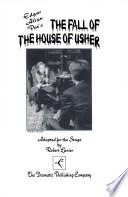
The Fall of the House of Usher
Edgar Allan Poe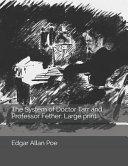
The System of Doctor Tarr and Professor Fether
Edgar Allan Poe
The Angel of the Odd
Edgar Allan PoeFamous Edgar Allan Poe Quotes
“I became insane, with long intervals of horrible sanity.”
Letter http://www.eapoe.org/works/letters/p4801040.htm to George W. Eveleth, Jan. 4, 1848.
“All that we see or seem
Is but a dream within a dream.”
"A Dream Within a Dream" (1849).
Context: You are not wrong, who deem
That my days have been a dream;
Yet if hope has flown away
In a night, or in a day,
In a vision, or in none,
Is it therefore the less gone?
All that we see or seem
Is but a dream within a dream.
“Believe nothing you hear, and only one half that you see.”
"The System of Doctor Tarr and Professor Fether" (1845)
“Sleep. Those little slices of death. How I loathe them.”
Various forms of this quote are attributed to Poe, primarily by a title card in the movie A Nightmare on Elm Street 3, though there is no record of his having ever said it.
Misattributed
Edgar Allan Poe Quotes about the soul
“And my soul from out that shadow that lies floating on the floor
Shall be lifted — nevermore!”
Stanza 18.
The Raven (1844)
The Black Cat (1843)
Have we not a perpetual inclination, in the teeth of our best judgement, to violate that which is Law, merely because we understand it to be such?
The Black Cat (1843)
Marginalia http://www.easylit.com/poe/comtext/prose/margin.shtml (November 1844)
The Black Cat (1843)
"The Cask of Amontillado" (1846).
Edgar Allan Poe Quotes about love

St. 2.
Annabel Lee (1849)
Context: I was a child and she was a child,
In this kingdom by the sea,
But we loved with a love that was more than love —
I and my Annabel Lee —
With a love that the wingèd seraphs of Heaven
Coveted her and me.
“Years of love have been forgot
In the hatred of a minute.”
To M——— (1829), reported in Bartlett's Familiar Quotations, 10th ed. (1919).
The Tell-Tale Heart (1843)
Edgar Allan Poe: Trending quotes
"The Murders in the Rue Morgue" (1841).
then let thy heart
From its present pathway part not!
Being everything which now thou art,
Be nothing which thou art not.
So with the world thy gentle ways,
Thy grace, thy more than beauty,
Shall be an endless theme of praise,
And love — a simple duty.
" To Frances S. Osgood http://www.readbookonline.net/readOnLine/595/" (1845).
“We loved with a love that was more than love.”
Source: Annabel Lee
Edgar Allan Poe Quotes
“From childhood's hour I have not been
As others were — I have not seen
As others saw —”
" Alone http://gothlupin.tripod.com/valone.html", l. 1-8 (written 1829, published 1875).
Context: From childhood's hour I have not been
As others were — I have not seen
As others saw — I could not bring
My passions from a common spring —
From the same source I have not taken
My sorrow — I could not awaken
My heart to joy at the same tone —
And all I lov'd — I lov'd alone
“Beauty is the sole legitimate province of the poem.”
"The Philosophy of Composition" (published 1846).
“Man is an animal that diddles, and there is no animal that diddles but man.”
" Diddling: Considered As One Of The Exact Sciences http://www.classicreader.com/read.php/sid.6/bookid.1390/"; first published as "Raising the Wind" in Saturday Courier (1843-10-14).
“You are not wrong, who deem
That my days have been a dream;”
"A Dream Within a Dream" (1849).
Context: You are not wrong, who deem
That my days have been a dream;
Yet if hope has flown away
In a night, or in a day,
In a vision, or in none,
Is it therefore the less gone?
All that we see or seem
Is but a dream within a dream.
St. 1.
Annabel Lee (1849)
Context: It was many and many a year ago,
In a kingdom by the sea,
That a maiden lived whom you may know
By the name of Annabel Lee; —
And this maiden she lived with no other thought
Than to love and be loved by me.
Stanza 1.
The Raven (1844)
Context: Once upon a midnight dreary, while I pondered, weak and weary,
Over many a quaint and curious volume of forgotten lore,
While I nodded, nearly napping, suddenly there came a tapping,
As of some one gently rapping, rapping at my chamber door.
“And now have I not told you that what you mistake for madness is but over-acuteness of the senses?”
The Tell-Tale Heart (1843)
Context: And now have I not told you that what you mistake for madness is but over-acuteness of the senses? -- now, I say, there came to my ears a low, dull, quick sound, such as a watch makes when enveloped in cotton. I knew that sound too. It was the beating of the old man's heart. It increased my fury, as the beating of a drum stimulates the soldier into courage.
“If you wish to forget anything on the spot, make a note that this thing is to be remembered.”
Marginalia http://www.easylit.com/poe/comtext/prose/margin.shtml (November 1844)
Variant: If you wish to forget anything on the spot, make a note that this thing is to be remembered.
“As for myself, I am simply Hop-Frog, the jester — and this is my last jest.”
"Hop-Frog" (1850).
“By a route obscure and lonely,
Haunted by ill angels only,”
"Dreamland", st. 1 (1845).
Context: By a route obscure and lonely,
Haunted by ill angels only,
Where an Eidolon, named NIGHT,
On a black throne reigns upright,
I have reached these lands but newly
From an ultimate dim Thule —
From a wild weird clime that lieth, sublime,
Out of SPACE — out of TIME.
“Thy Naiad airs have brought me home
To the glory that was Greece
And the grandeur that was Rome.”
"To Helen", st. 1-2 (1831).
Context: p>Helen, thy beauty is to me
Like those Nicean barks of yore,
That gently, o'er a perfumed sea,
The weary, wayworn wanderer bore
To his own native shore.On desperate seas long wont to roam,
Thy hyacinth hair, thy classic face,
Thy Naiad airs have brought me home
To the glory that was Greece
And the grandeur that was Rome.</p
"Berenice".
“Thy grace, thy more than beauty,
Shall be an endless theme of praise,
And love — a simple duty.”
" To Frances S. Osgood http://www.readbookonline.net/readOnLine/595/" (1845).
Context: Thou wouldst be loved? — then let thy heart
From its present pathway part not!
Being everything which now thou art,
Be nothing which thou art not.
So with the world thy gentle ways,
Thy grace, thy more than beauty,
Shall be an endless theme of praise,
And love — a simple duty.
“Thou wast that all to me, love,
For which my soul did pine —”
"To One in Paradise", st. 1 (1834).
Context: Thou wast that all to me, love,
For which my soul did pine —
A green isle in the sea, love,
A fountain and a shrine,
All wreathed with fairy fruits and flowers,
And all the flowers were mine.
"Dreamland", st. 1 (1845).
Context: By a route obscure and lonely,
Haunted by ill angels only,
Where an Eidolon, named NIGHT,
On a black throne reigns upright,
I have reached these lands but newly
From an ultimate dim Thule —
From a wild weird clime that lieth, sublime,
Out of SPACE — out of TIME.
“I could not awaken
My heart to joy at the same tone —
And all I lov'd — I lov'd alone —”
" Alone http://gothlupin.tripod.com/valone.html", l. 1-8 (written 1829, published 1875).
Context: From childhood's hour I have not been
As others were — I have not seen
As others saw — I could not bring
My passions from a common spring —
From the same source I have not taken
My sorrow — I could not awaken
My heart to joy at the same tone —
And all I lov'd — I lov'd alone
Poe stating his arguments that Maelzel's Chess-Player was a hoax. Maelzel's Chess-Player http://www.eapoe.org/works/essays/maelzel.htm, Southern Literary Journal (April 1836).
Marginalia http://www.easylit.com/poe/comtext/prose/margin.shtml (November 1844)
"The Angel of the Odd" (1850).
“They who dream by day are cognizant of many things which escape those who dream only by night.”
" Eleonora http://www.classicreader.com/read.php/sid.6/bookid.9/" (1841).
Quoth the Raven, "Nevermore."
Stanza 8.
The Raven (1844)
“A dark unfathom'd tide
Of interminable pride —
A mystery, and a dream,
Should my early life seem.”
" Imitation http://www.americanpoems.com/poets/poe/17481", Tamerlane and Other Poems (1827).
“How many good books suffer neglect through the inefficiency of their beginnings!”
Marginalia http://www.easylit.com/poe/comtext/prose/margin.shtml (November 1844)
"The Angel Of The Odd: An Extravaganza".
“All religion, my friend, is simply evolved out of chicanery, fear, greed, imagination and poetry!”
Sometimes quoted as "All religion, my friend, is simply evolved out of fraud, fear, greed, imagination and poetry"
According to John A. Joyce's much-criticized biography Edgar Allen Poe (1901), this was said by Poe to William Barton.
Disputed
Source: Google Books link https://books.google.com/books?id=_cdEAAAAYAAJ&printsec=frontcover&dq=John+Alexander+Joyce+poe&hl=en&sa=X&ved=0CBwQ6AEwAGoVChMIsuLtsoXUyAIVVSqICh2cqAI_#v=onepage&q=%22chicanery%2C%20fear%22&f=false
Marginalia http://www.easylit.com/poe/comtext/prose/margin.shtml (November 1844)
The Tell-Tale Heart (1843)
Stanza 17.
The Raven (1844)
“Thus I pacified Psyche and kissed her,
And tempted her out of her gloom.”
St. 8.
Ulalume (1847)
" A Few Words on Secret Writing http://www.lfchosting.com/eapoe/works/essays/fwsw0741.htm" in Graham's Magazine (July 1841).
“This—all this—was in the olden
Time long ago.”
"The Haunted Palace" (1839), st. 2.
"The Fall of the House of Usher" (1839).
The Poetic Principle (1850)
Marginalia http://www.easylit.com/poe/comtext/prose/margin.shtml (November 1844)
The Poetic Principle (1850)
Context: I hold that a long poem does not exist. I maintain that the phrase, "a long poem," is simply a flat contradiction in terms.
I need scarcely observe that a poem deserves its title only inasmuch as it excites, by elevating the soul. The value of the poem is in the ratio of this elevating excitement. But all excitements are, through a psychal necessity, transient. That degree of excitement which would entitle a poem to be so called at all, cannot be sustained throughout a composition of any great length.
